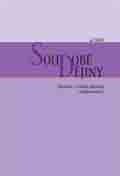Totalitarismus jako teorie a jako český „totáč“
Totalitarianism as Theory and as Czech ‘Totáč’
Author(s): Jan PauerSubject(s): History
Published by: AV ČR - Akademie věd České republiky - Ústav pro soudobé dějiny
Summary/Abstract: Miloš Havelka’s attempt to characterize the years 1939 to 1956 as a ‘totalitarian period’ in Czech history raises a number of questions. Both the wide range of approaches to conceptualizing totalitarianism and the large number of historical phenomena make it unlikely that one can justifi ably claim that there was an ‘internal commonality’ for this period. Theories of totalitarianism can be usefully applied in comparisons of dictatorial régimes rather than in the definition of historical periods. In the context of the Czech discourse on totalitarianism, which largely limits itself to Communist dictatorship, Havelka, by taking into account National Socialist rule as well, provides an important impulse, which could lead to some light being shed on the links between the two kinds of dictatorship. Petr Pithart’s claim about the consequences the transformation after 1989 may have for a misinterpretation of totalitarian dictatorship is less relevant to the economic transformation than to the widespread social pathologies that constitute a cornerstone of dictatorial rule.
Journal: Soudobé Dějiny
- Issue Year: XVI/2009
- Issue No: 04
- Page Range: 699-708
- Page Count: 10
- Language: Czech

